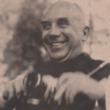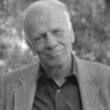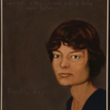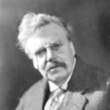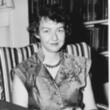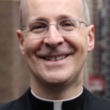The life you save may be your own : an American pilgrimage
(Unknown)
Description
More Details
Notes
Subjects
American literature -- Catholic authors -- History and criticism.
Authors, American -- 20th century -- Biography.
Catholics -- United States -- Biography.
Catholics -- United States -- Intellectual life -- 20th century.
Christianity and literature -- United States -- History -- 20th century.
Also in this Series
Published Reviews
Choice Review
The first book by Paul Elie, an editor for the past decade at Farrar, Straus & Giroux, is a compendium of simultaneous narratives on the lives and work of four Roman Catholic authors--Flannery O'Connor, Walker Percy, Dorothy Day, and Thomas Merton--a radically new approach to both literary criticism and biography. Elie's interest in the intersections of these lives and the phenomenon of the simultaneity of much of their work led him to construct fragmentary narratives that interweave life events and connections between and among these authors. What gradually unfolds is a sense of spiritual, intellectual, and (in the case of Day) political direction among four members of disparate groups and their many friends and influences (figures like Caroline Gordon, Evelyn Waugh, and Shelby Foote). Whether literary, political, or monastic--and in spite of the dramatic differences in geography, upbringing, and home environments--the locus of devotion and commitment of these four figures was the Church, and their pilgrimages merged as they approached the same destination. This is a most provocative and stirring examination of a movement that linked four writers and has found contemporary adherents in Denise Levertov, Ron Hansen, J.F. Powers, and Andre Dubus. ^BSumming Up: Highly recommended. All collections; all levels. J. P. Baumgaertner Wheaton College (IL)
Booklist Review
Elie has fashioned a fascinating multiple biography of four of the most influential Catholic literary figures of the twentieth century. Interweaving the life stories of Thomas Merton, Dorothy Day, Walker Percy, and Flannery O'Connor, he illustrates how all four integrated the theme of pilgrimage into their work. He also analyzes the literary pilgrimages each of his subjects embarked upon during lifetimes devoted to reading, writing, and contemplation. Of primary significance to each of these authors was religion. Merton, Day, and Percy were all converts who zealously incorporated their adopted faith into both their daily lives and their writing. O'Connor, born and bred a Catholic among Protestants, instilled a thoroughly original sense of divine irony into her fiction. These four biographies serve as a backdrop for the scholarly analysis of the inspirational intersection of life, art, and religion. --Margaret Flanagan
Publisher's Weekly Review
Four 20th-century writers whose work was steeped in their shared Catholic faith come together in this masterful interplay of biography and literary criticism. Elie, an editor at Farrar, Straus & Giroux, where three of the four writers published their work, lays open the lives and writings of the monk Thomas Merton, Catholic Worker founder Dorothy Day, and novelists Flannery O'Connor and Walker Percy. Drawing comparisons between their backgrounds, temperaments, circumstances and words, he reveals "four like-minded writers" whose work took the shape of a movement. Though they produced no manifesto, Elie writes, they were unified as pilgrims moving toward the same destination while taking different paths. As they sought truth through their writing, he observes, they provided "patterns of experience" that future pilgrims could read into their lives. This volume (the title is taken from a short story of the same name by O'Connor) is an ambitious undertaking and one that could easily have become ponderous, but Elie's presentation of the material is engaging and thoughtful, inspiring reflection and further study. Beginning with four separate figures joined only by their Catholicism and their work as writers, he deftly connects them, using their correspondence, travels, places of residence, their religious experiences and their responses to the tumultuous events of their times. This thoroughly researched and well-sourced work deserves attention from students of history, literature and religion, but it will be of special significance to Catholic readers interested in the expression of faith in the modern world. (Apr.) (c) Copyright PWxyz, LLC. All rights reserved
Library Journal Review
In the 1950s, Englishman Evelyn Waugh lamented the lack of a distinctively American Catholic literary tradition, even as one was finding its voice right under his nose. Farrar editor Elie (ed., A Tremor of Bliss: Contemporary Writers on the Saints) uses his considerable gifts as a storyteller to weave together the biographies of four figures who became that "School of the Holy Ghost": Thomas Merton, the celebrity monk whose writing popularized American monasticism; Dorothy Day, the leftist radical who established the Catholic Worker movement; Flannery O'Connor, the Georgian author of "freakish" literary imagination; and Walker Percy, the Southern gentleman who brought faith to modern existential angst. Just what drew these eclectic authors to pre-Vatican II Catholicism and held and nurtured them there remains elusive-elusive enough to keep the reader enthralled up to the epilog. The title (from the O'Connor story of the same name) highlights Elie's motivation in drawing these voices together: their diverse yet intersecting pilgrimages offer food for reflection for Americans concerned about faith, literature, and spiritual experience. Any library that is weak in one of these authors or whose patrons have a strong interest in American spirituality has reason to place this excellent book on its shelves.-Steve Young, McHenry Cty. Coll., Crystal Lake, IL (c) Copyright 2010. Library Journals LLC, a wholly owned subsidiary of Media Source, Inc. No redistribution permitted.
Kirkus Book Review
The lives of four spiritually hungry, sometimes renegade, and now well-known American Catholics meet in a thoughtful study of ideas in action. They were "ordinary people, on the face of it," writes FSG editor Elie (ed., A Tremor of Bliss, 1994)--"but for many of us . . . icons." Each in his or her own way, Thomas Merton, Dorothy Day, Flannery O'Connor, and Walker Percy, brought intellectual power and activist vigor to a conservative American Catholic Church, courting controversy with their heterodoxical writings and deeds. Merton and Day, writes Elie, came to Christianity through the back door of Marxism. Day, who founded the Catholic Workers movement (and is now a candidate for sainthood), came to the conclusion that "while Communism claimed to represent the masses, the masses 'accepted the Church' instead, and put their faith in it," such that it seemed the most revolutionary thing to do was to go where the masses (and Mass) were and reform from within. More withdrawn from the world until the end of his life, when he became an activist against the war in Vietnam, Merton was a contemplative monk whose writings, such as The Seven Storey Mountain, became handbooks for spiritual seekers; ever self-critical, Merton always "worried that he was serving up 'professional spirituality' instead of describing what the experience of God was like," an experience that the Georgia-born novelist O'Connor wrestled to put on the page as well, while the Louisiana writer and physician Percy strived ever to balance the sacred and the profane in works such as the roman à clef The Moviegoer. These four, contemporaries all, were only dimly aware of each other at the outset, but as time went on, scattered across the country, they came to form something of a school--a unity, Elie gracefully observes, "will be that of pilgrims who are taking different routes to the same destination, conversing at long distance from time to time." That conversation--and this lucid work--will greatly interest readers on literary and spiritual quests of their own. Copyright ©Kirkus Reviews, used with permission.
Booklist Reviews
Elie has fashioned a fascinating multiple biography of four of the most influential Catholic literary figures of the twentieth century. Interweaving the life stories of Thomas Merton, Dorothy Day, Walker Percy, and Flannery O'Connor, he illustrates how all four integrated the theme of pilgrimage into their work. He also analyzes the literary pilgrimages each of his subjects embarked upon during lifetimes devoted to reading, writing, and contemplation. Of primary significance to each of these authors was religion. Merton, Day, and Percy were all converts who zealously incorporated their adopted faith into both their daily lives and their writing. O'Connor, born and bred a Catholic among Protestants, instilled a thoroughly original sense of divine irony into her fiction. These four biographies serve as a backdrop for the scholarly analysis of the inspirational intersection of life, art, and religion. ((Reviewed March 15, 2003)) Copyright 2003 Booklist Reviews
Library Journal Reviews
In the 1950s, Englishman Evelyn Waugh lamented the lack of a distinctively American Catholic literary tradition, even as one was finding its voice right under his nose. Farrar editor Elie (ed., A Tremor of Bliss: Contemporary Writers on the Saints) uses his considerable gifts as a storyteller to weave together the biographies of four figures who became that "School of the Holy Ghost": Thomas Merton, the celebrity monk whose writing popularized American monasticism; Dorothy Day, the leftist radical who established the Catholic Worker movement; Flannery O'Connor, the Georgian author of "freakish" literary imagination; and Walker Percy, the Southern gentleman who brought faith to modern existential angst. Just what drew these eclectic authors to pre-Vatican II Catholicism and held and nurtured them there remains elusive-elusive enough to keep the reader enthralled up to the epilog. The title (from the O'Connor story of the same name) highlights Elie's motivation in drawing these voices together: their diverse yet intersecting pilgrimages offer food for reflection for Americans concerned about faith, literature, and spiritual experience. Any library that is weak in one of these authors or whose patrons have a strong interest in American spirituality has reason to place this excellent book on its shelves.-Steve Young, McHenry Cty. Coll., Crystal Lake, IL Copyright 2003 Reed Business Information.
Publishers Weekly Reviews
Four 20th-century writers whose work was steeped in their shared Catholic faith come together in this masterful interplay of biography and literary criticism. Elie, an editor at Farrar, Straus & Giroux, where three of the four writers published their work, lays open the lives and writings of the monk Thomas Merton, Catholic Worker founder Dorothy Day, and novelists Flannery O'Connor and Walker Percy. Drawing comparisons between their backgrounds, temperaments, circumstances and words, he reveals "four like-minded writers" whose work took the shape of a movement. Though they produced no manifesto, Elie writes, they were unified as pilgrims moving toward the same destination while taking different paths. As they sought truth through their writing, he observes, they provided "patterns of experience" that future pilgrims could read into their lives. This volume (the title is taken from a short story of the same name by O'Connor) is an ambitious undertaking and one that could easily have become ponderous, but Elie's presentation of the material is engaging and thoughtful, inspiring reflection and further study. Beginning with four separate figures joined only by their Catholicism and their work as writers, he deftly connects them, using their correspondence, travels, places of residence, their religious experiences and their responses to the tumultuous events of their times. This thoroughly researched and well-sourced work deserves attention from students of history, literature and religion, but it will be of special significance to Catholic readers interested in the expression of faith in the modern world. (Apr.) Copyright 2003 Reed Business Information.
Reviews from GoodReads
Citations
Elie, P. (2003). The life you save may be your own: an American pilgrimage . Farrar, Straus and Giroux.
Chicago / Turabian - Author Date Citation, 17th Edition (style guide)Elie, Paul. 2003. The Life You Save May Be Your Own: An American Pilgrimage. New York: Farrar, Straus and Giroux.
Chicago / Turabian - Humanities (Notes and Bibliography) Citation, 17th Edition (style guide)Elie, Paul. The Life You Save May Be Your Own: An American Pilgrimage New York: Farrar, Straus and Giroux, 2003.
Harvard Citation (style guide)Elie, P. (2003). The life you save may be your own: an american pilgrimage. New York: Farrar, Straus and Giroux.
MLA Citation, 9th Edition (style guide)Elie, Paul. The Life You Save May Be Your Own: An American Pilgrimage Farrar, Straus and Giroux, 2003.


























